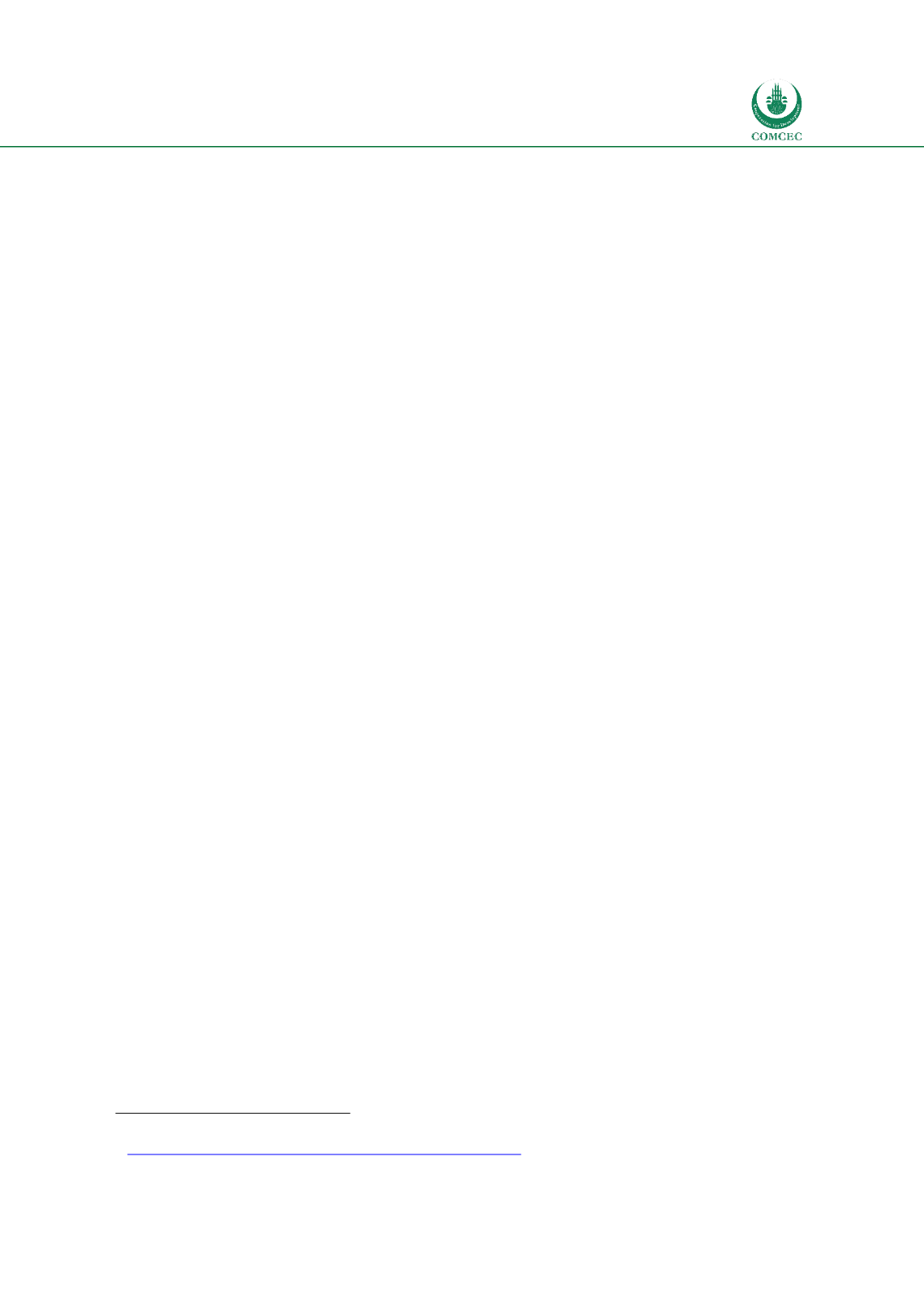

National and Global Islamic Financial Architecture:
Prolems and Possible Solutions for the OIC Member Countries
51
3.5. Information Infrastructure and Transparency
Information and governance infrastructure are key to financial sector development and
effective market discipline (World Bank 2005: 241). The opacity of information increases risks
and the costs of capital and reduce trading volumes affecting the functioning of financial
markets adversely. There are two key aspects of information infrastructure that help in making
sound decisions on financing and investments which in turn promote the development of the
financial sector and economy. First, good quality information on financial instruments,
organizations and markets must be provided to the investors and customers. Second, accurate
and reliable information on credit worthiness of clients must be available to reduce risks and
losses of financial institutions. These are discussed below.
3.5.1. Accounting and Auditing Framework/Transparency and Disclosure
An important element of a well-functioning financial architecture is the accounting and
auditing framework that gives outside investors high-quality information. Good accounting
systems producing high-quality disclosure and transparency are essential for informed
decision making and promoting efficient resource allocation (World Bank 2005: 247). High
quality disclosure of information and accounting practices mitigates information asymmetry
and increases investor protection and enhances their confidence and the credibility of markets
(Kothari 2000). The quality of disclosure depends on the quality of accounting standards and
also on the institutional factors that include laws and regulations requiring compliance with
disclosure standards to protect consumers.
Given the key role of a sound information infrastructure, different international bodies are
encouraging the adoption of different international accounting standards to promote financial
stability and economic efficiency at the national level and improve the comparability of
statements between countries in an increasingly globalized world.
A key component of the
standards and codes initiative of the World Bank and International Monetary Fund (IMF) to
strengthen the international financial architecture includes an initiative for adopting
international standards (IMF and World Bank, 2005). After the recent global financial crisis,
additional international bodies such as G20 and the Basel Committee Banking Supervision are
also supporting the use of standards globally (Pacter, 2014). International Accounting
Standards Board (IASB), an independent global standards-setting body of the IFRS Foundation,
is responsible for developing accounting and reporting standards to bring about ‘transparency,
accountability and efficiency to financial markets around the world’ to serve ‘the public
interest by fostering trust, growth and long-term financial stability in the global economy.’
14
The resulting standards developed by IASB, the International Financial Reporting Standards
(IFRS), are used by different countries to develop country level accounting standards.
Some of the accounting requirements of Islamic banking operations may not be covered by the
international accounting standards (Archer and Karim, 2007; Hamid
et al.,
1993). While some
conditions in IFRS are not relevant for Islamic banks, some contractual requirements arising
from Shariah compliance may not be covered in international standards. Recognizing this, the
Accounting and Auditing Organisation for Islamic Financial Institutions (AAOIFI) was
established as a standard-setting body to issue accounting and auditing standards for Islamic
1
4 http://www.ifrs.org/About-us/Pages/IFRS-Foundation-and-IASB.aspx















